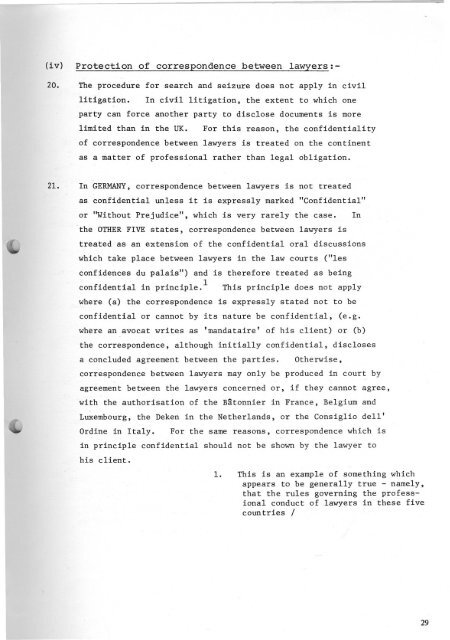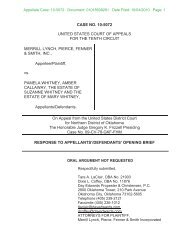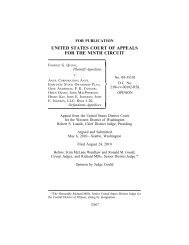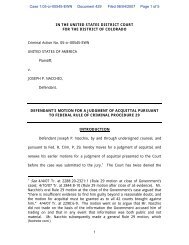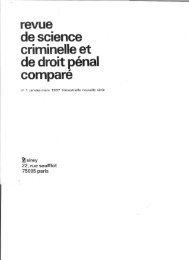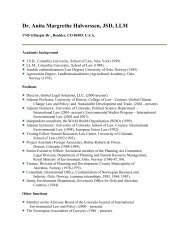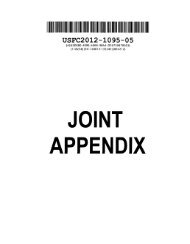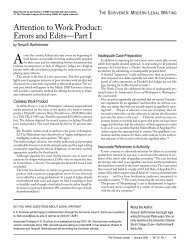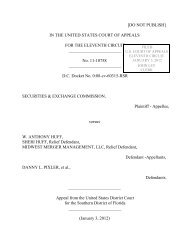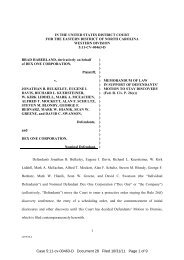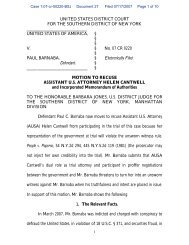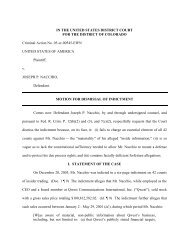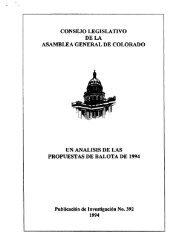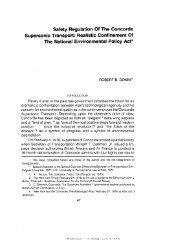The Professional Secret, Confidentiality and Legal Profession ...
The Professional Secret, Confidentiality and Legal Profession ...
The Professional Secret, Confidentiality and Legal Profession ...
Create successful ePaper yourself
Turn your PDF publications into a flip-book with our unique Google optimized e-Paper software.
(iv) Protection of correspondence between lawyers:-<br />
20. <strong>The</strong> procedure for search <strong>and</strong> seizure does not apply in civil<br />
litigation. In civil litigation, the extent to which one<br />
party can force another party to disclose documents is more<br />
limited than in the UK. For this reason, the confidentiality<br />
of correspondence between lawyers is treated on the continent<br />
as a matter of professional rather than legal obligation.<br />
21. In GERMANY, correspondence between lawyers is not treated<br />
as confidential unless it is expressly marked "Confidential"<br />
or "Without Prejudice", which is very rarely the case. In<br />
the OTHER FIVE states, correspondence between lawyers is<br />
treated as an extension of the confidential oral discussions<br />
which take place between lawyers in the law courts ("les<br />
confidences du pa1ais") <strong>and</strong> is therefore treated as being<br />
confidential in princip1e.1 This principle does not apply<br />
where (a) the correspondence is expressly stated not to be<br />
confidential or cannot by its nature be confidential, (e.g.<br />
where an avocat writes as 'm<strong>and</strong>ataire' of his client) or (b)<br />
the correspondence, although initially confidential, discloses<br />
a concluded agreement between the parties. Otherwise,<br />
correspondence between lawyers may only be produced in court by<br />
agreement between the lawyers concerned or, if they cannot agree,<br />
with the authorisation of the Batonnier in France, Belgium <strong>and</strong><br />
Luxembourg, the Deken in the Netherl<strong>and</strong>s, or the Consig1io dell'<br />
Ordine in Italy. For the same reasons, correspondence which is<br />
in principle confidential should not be shown by the lawyer to<br />
his client.<br />
1. This is an example of something which<br />
appears to be generally true - namely,<br />
that the rules governing the professional<br />
conduct of lawyers in these five<br />
countries /<br />
29


